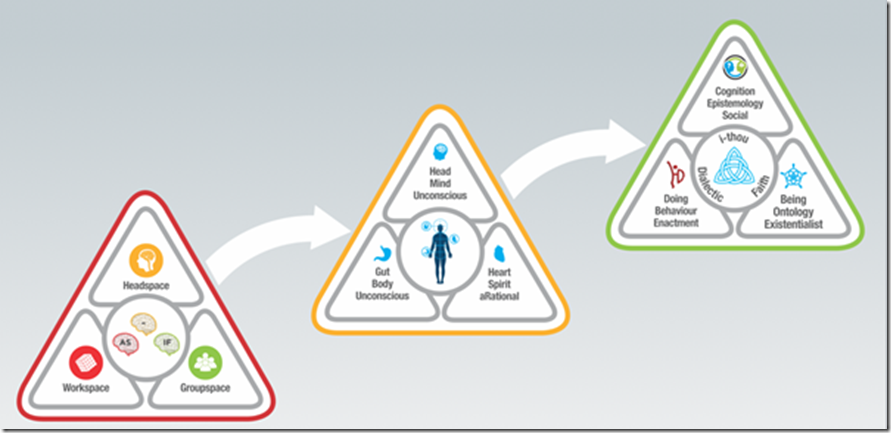Originally posted on November 2, 2022 @ 9:58 AM
Ontology simply means philosophy of being.
What philosophy drives your method in safety? This should be a critical question for the safety industry.
Unfortunately, in this industry, the moment one mentions a word over 5 letters it is classified as ‘academic’ and somehow irrelevant to the practice of safety. Yet, endless acronyms are deemed OK, even though few know their meaning.
Safety is an industry that loves methods, downloading checklists and templates. There is no such thing as a method without an underlying philosophy and one’s philosophy is anchored to one’s reason for being, ontology.
This shouldn’t be too difficult to grasp and is essential to understanding practice. There should be no separation between theory and practice, one complements the other.
Even when Safety uses the word ‘philosophy’ and ‘ideology’ such terms are not defined and usually just mean ‘systems’. Here are some examples:
· https://rootsofprogress.org/towards-a-philosophy-of-safety
· https://paper360.tappi.org/2020/05/08/my-safety-philosophy/
· https://bwcsafety.com.au/safety-leadership/
· https://www.kellyservices.ca/ca/about-us/health-and-safety/safety-philosophy/
None of these are a statement of philosophy, nor an articulated ethic. Throwing about some slogans that one values is not a philosophy indeed, many of the values in these examples are incongruent and anti-philosophical eg. ‘all accidents are preventable’. This is a slogan, and a dumb one at that, that denies reality and hides a philosophy of Transhumanism.
There is no curriculum in safety globally that considers ethics or philosophy of importance to the practice of safety. Thrusting out a few beliefs about so called ‘safety values’ are neither values nor a philosophy (https://www.kellyservices.ca/ca/about-us/health-and-safety/safety-philosophy/). Such is the safety code (https://safetyrisk.net/deciphering-safety-code/).
Similarly, when Safety uses the word ‘ideology’ and ‘culture’ it is rarely about ideology or culture (https://www.sine.co/blog/zero-harm-workplace/; https://www.monitorqa.com/zero-harm-culture/). Again, language of ‘ideology’ and ‘culture’ are usually about systems or expected behaviours and in the case of language about ‘zero’ are irrational, religious, mindless gobbledygook.
One of the things one gains from a study of philosophy is a sense of internal consistency in worldview. The ideology of zero is all over the place. The only way to believe in zero is to reject the idea of human fallibility, mortality and vulnerability.
So, in SPoR we articulate from the very introduction (https://safetyrisk.net/introduction-to-spor-free/) what philosophy drives SPoR methods.
This is critical, so that methods hold together, are consistent, practical and supported by extensive research/worldview. This is also why they work (https://www.humandymensions.com/product/it-works-a-new-approach-to-risk-and-safety/).
In SPoR, there is a clear Body of Knowledge (https://safetyrisk.net/social-psychology-of-risk-body-of-knowledge/) and Ontology that are the foundation. These are articulated semiotically as well in text. See Figure 1. SPoR Ontology.
Figure 1. SPoR Ontology.
When we discuss such things as motivation and perception in risk (in SPoR) (https://safetyrisk.net/understanding-goal-states-motivation-and-spor-a-video/) these are consistent and hold together in a foundational worldview of persons, neuroscience and phenomenology.
Where ever you have downloaded your safety checklists or methods, try to see if a founding philosophy is articulated. I’m yet to see one. When a philosophy is hidden it then becomes so easy to drift into a deontological ethic (Kantian Philosophy) and brutalise people in the name of ‘good’. This is what the AIHS BoK Chapter of Ethics sanctions.
The methods of SPoR (that work) are underpinned by a clearly articulated ontology/worldview and as such compete with other worldviews in safety that make claims to validity eg. Behaviourism, Positivism, Scientism. There is no one right philosophy (including SPoR) but rather views of the world that enable a particular form of practice, with a set of beliefs, values and view of persons.
In order to show how SPoR ontology is understood, Matt Thorne and I had a discussion here: https://vimeo.com/765971844
SPoR Ontology and Methods from CLLR on Vimeo.




Do you have any thoughts? Please share them below